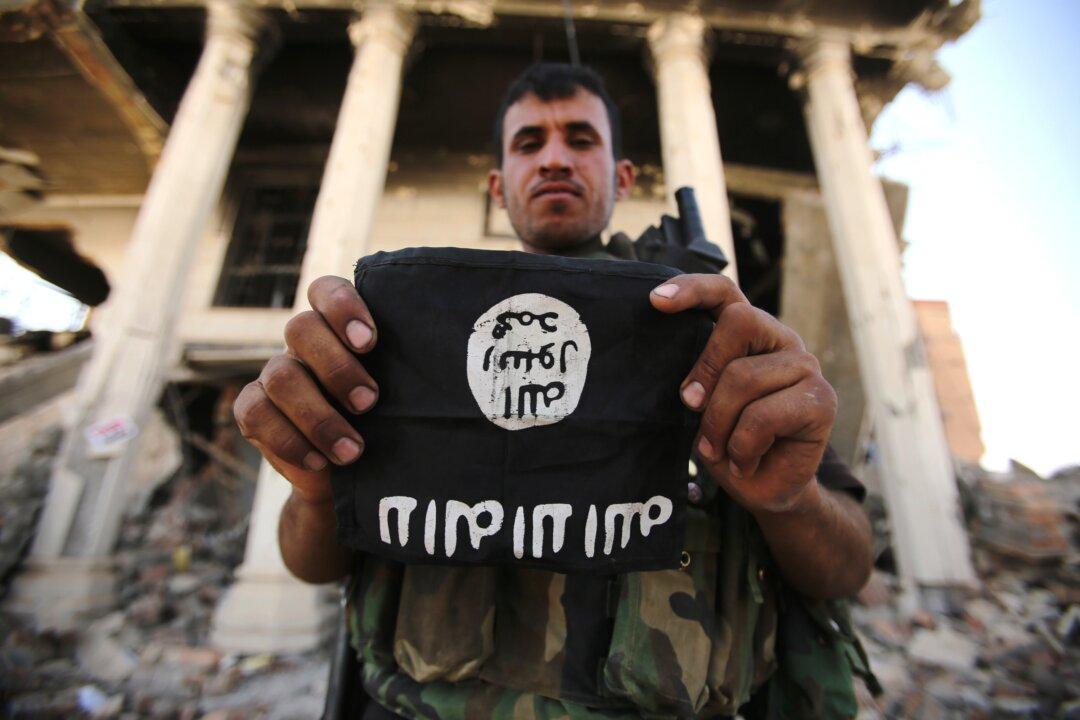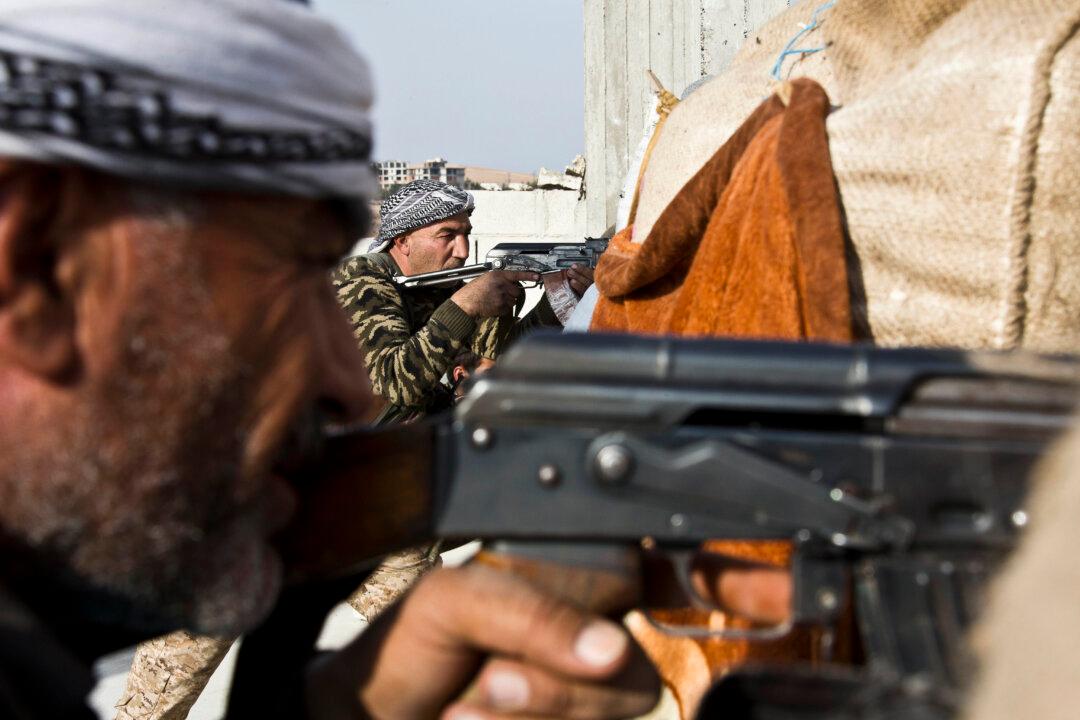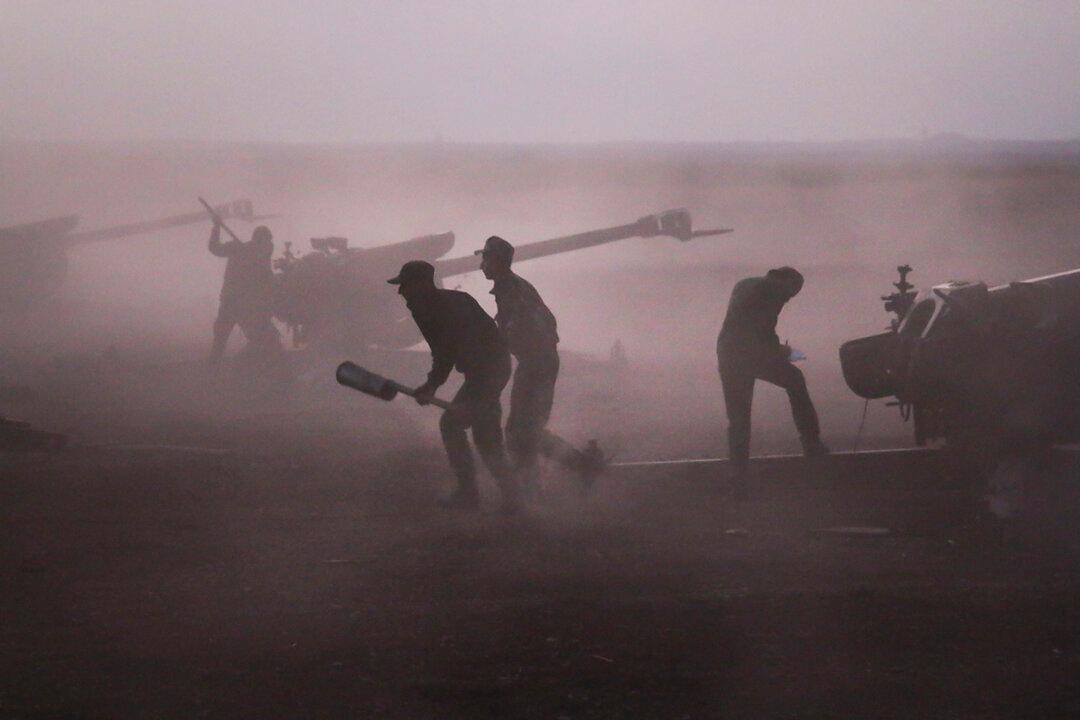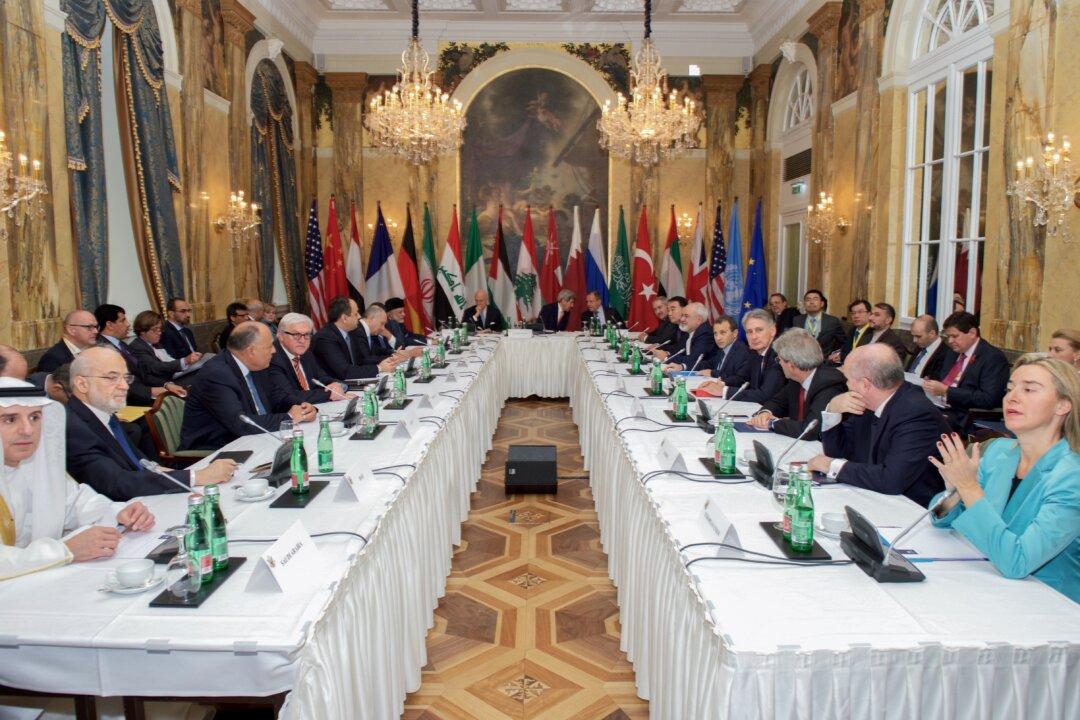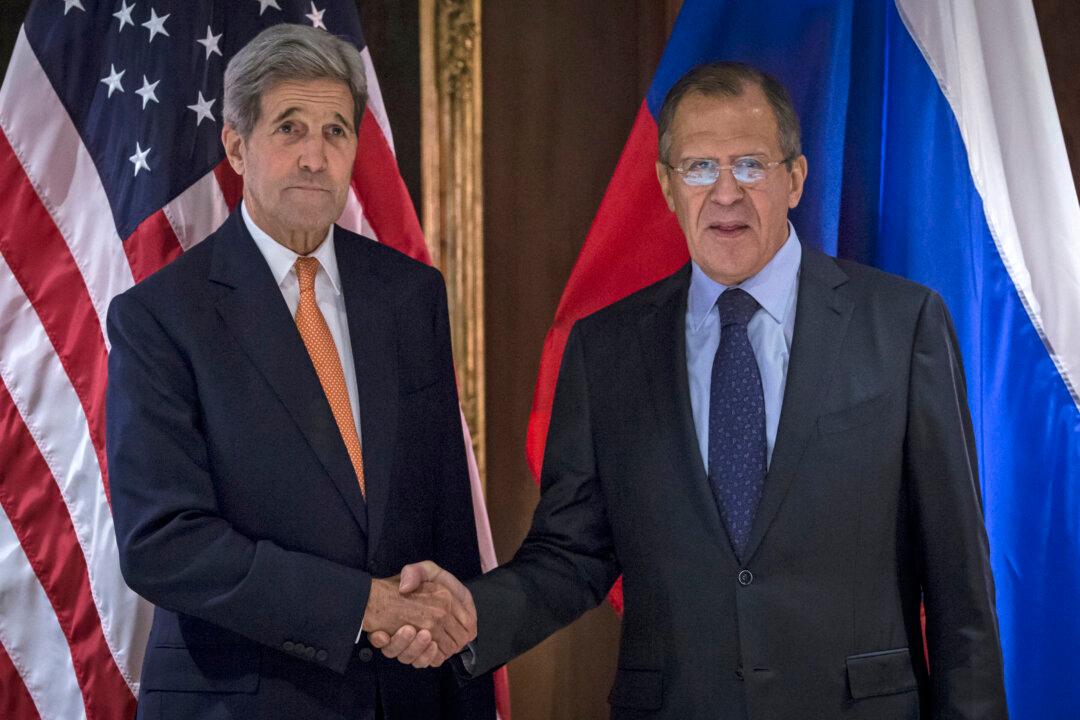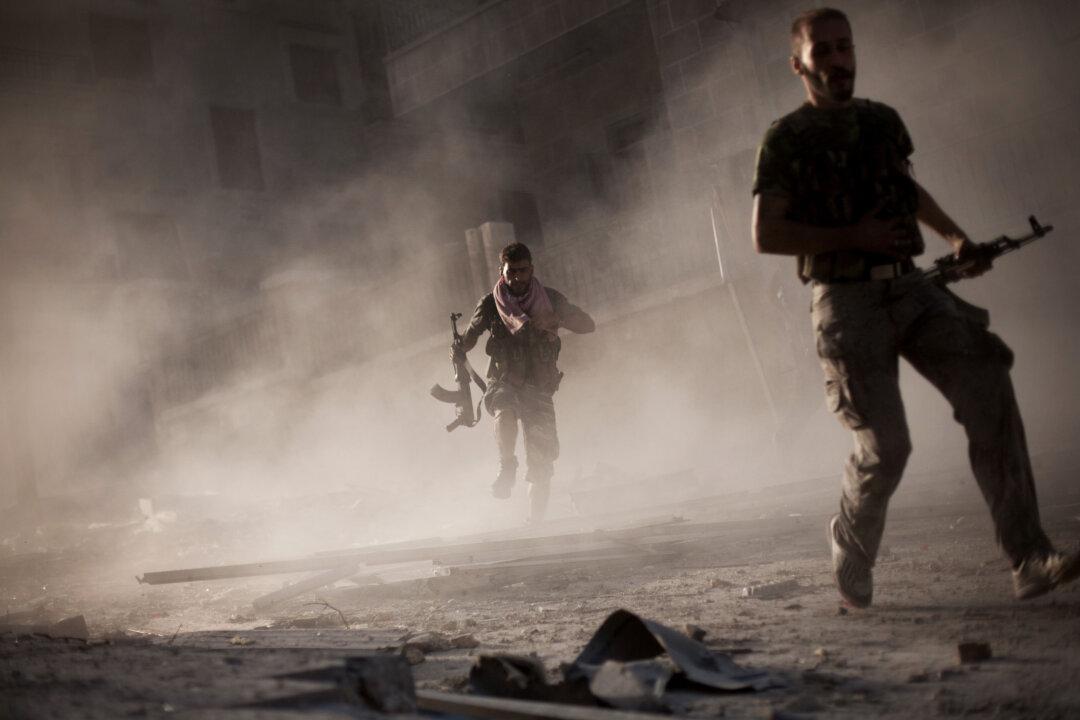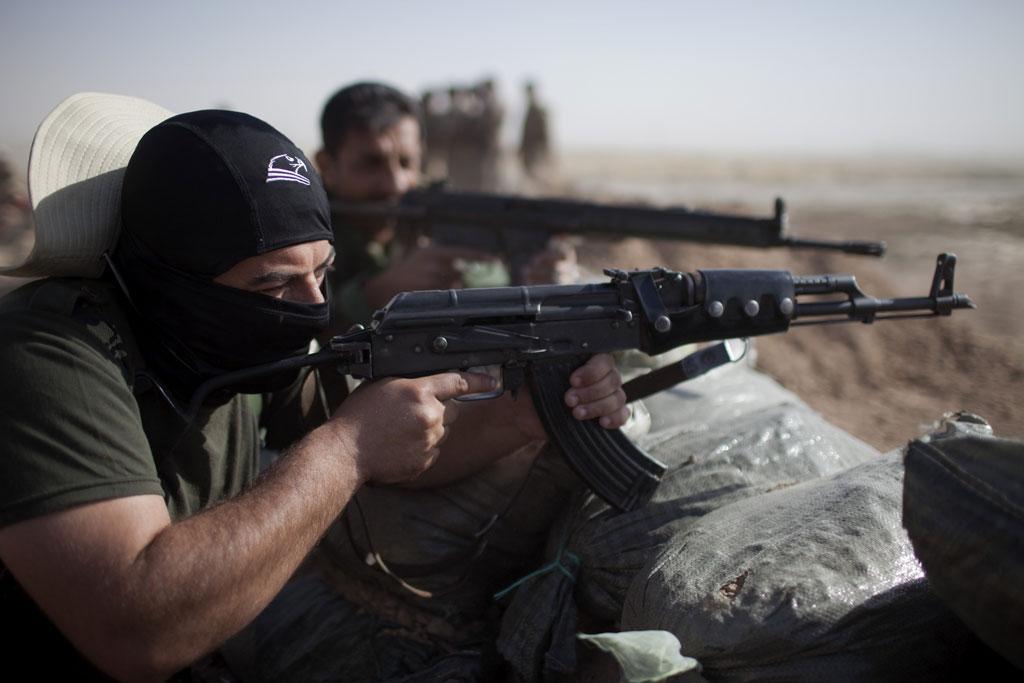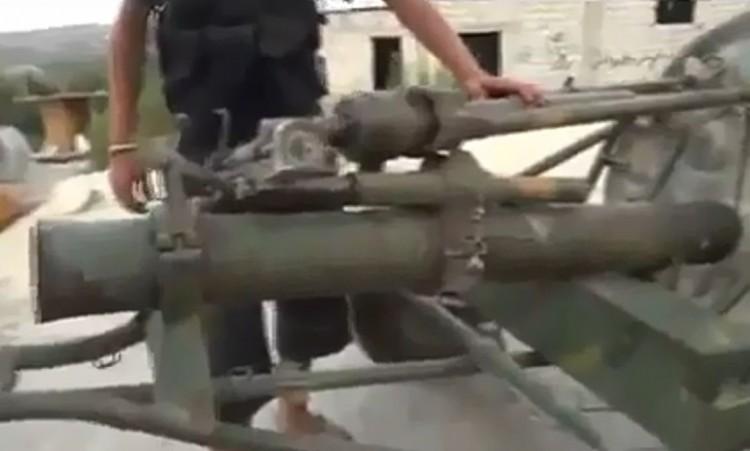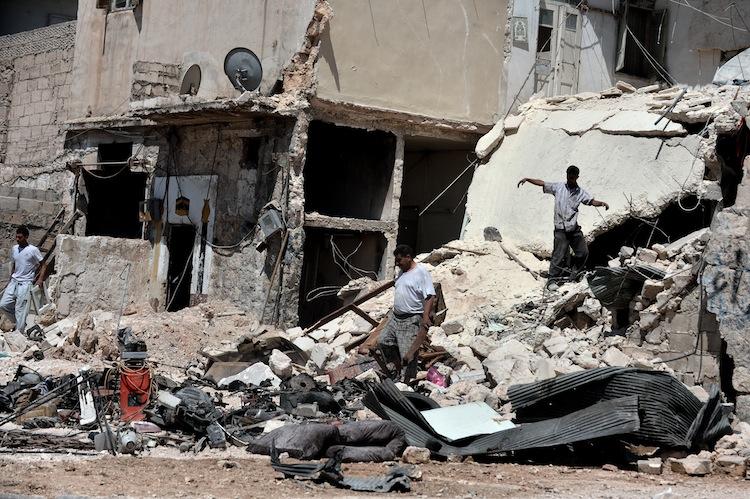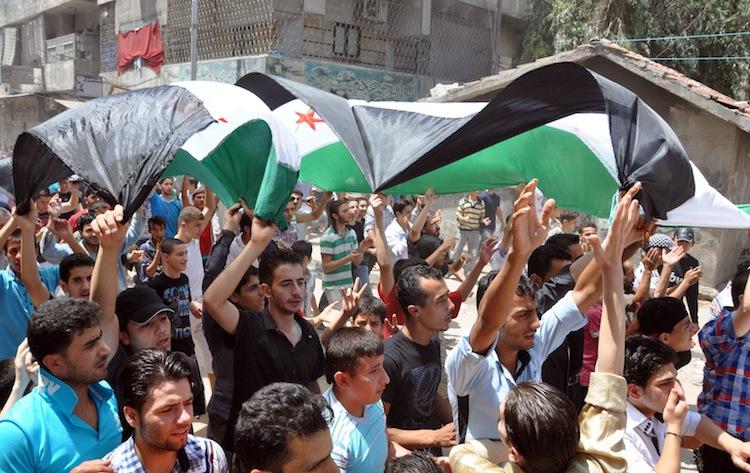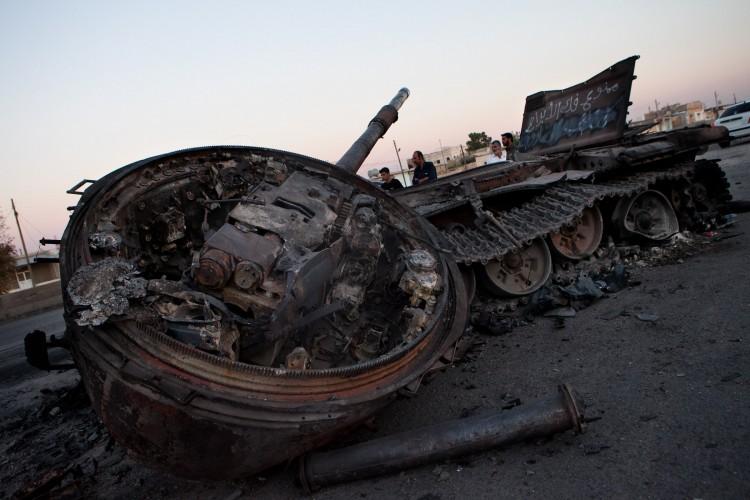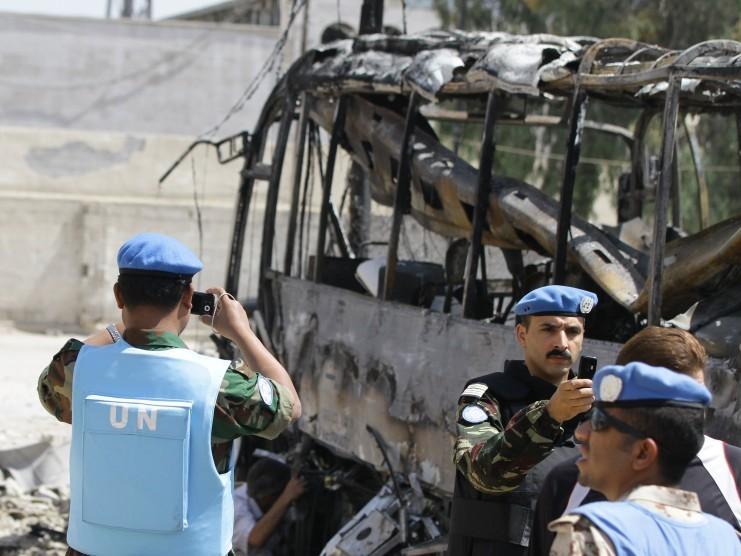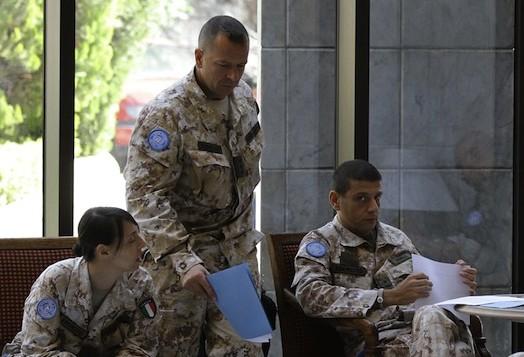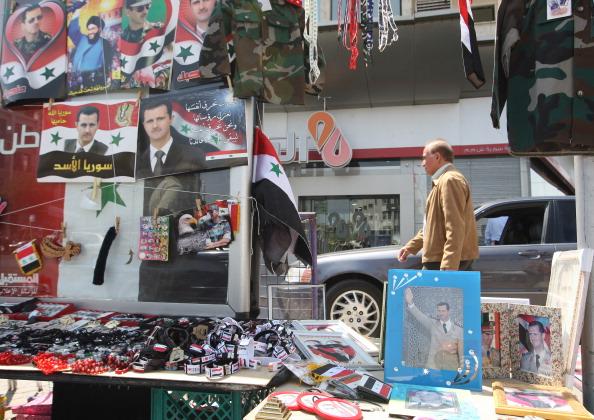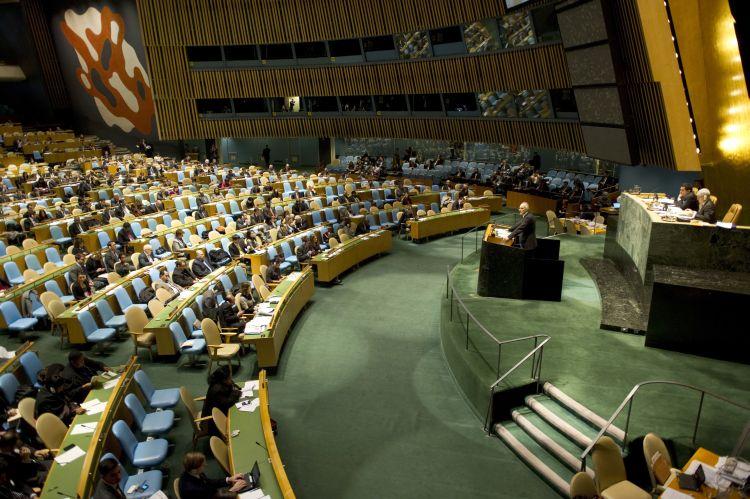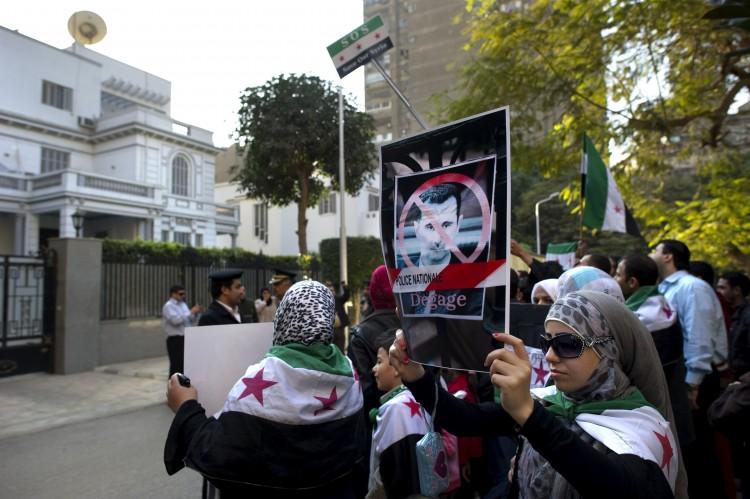Focus
Free Syrian Army
LATEST
Leaked Data Reveals Identity of ISIS Recruits and Recruiters
ISIS asks for a security deposit too.
|
US-Backed Rebels, Rival Insurgents Clash in Syria, 20 Killed
Fighting between U.S.-backed Syrian rebels and rival militants has killed more than 20 people in northern Syria over the past two days, opposition activists said on Monday
|
The Syrian War in One Short, Easy Read
the Syrian war involves numerous actors, dozens of seemingly contradictory alliances and rapidly changing dynamics. But while the war is indeed complicated, making sense of it is crucial to understanding the recent Paris attacks, the refugee crisis in Europe, and the continuing turmoil in the region. Here are the basics—decoded.
|
Syria: Is Putin Preparing to Dump Assad?
The answer from Russia’s foreign ministry spokeswoman Maria Zakharova was blunt. Asked on Nov. 3 if saving Syria’s president, Bashar al-Assad, was a matter of principle for the Russians, Zakharova replied: “Absolutely not, we never said that.”
|
Russia, US Discuss Organizing Syria Political Process
Russian Foreign Minister Sergey Lavrov and U.S. Secretary of State John Kerry on Saturday discussed ways of organizing a political process between the Syrian government and its opponents.
|
Who Are Syria’s Anti-Assad Forces?
When the Arab Spring hit Syria in 2011, few would have predicted that a simple uprising in Deraa would lead to full-blown conflict with over 250,000 dead and millions fleeing the country.
|
West-Backed Syria Rebels Shaken on Multiple Fronts
During a key battle in the rugged mountains of a northern province earlier this month, U.S.-backed Syrian rebels collapsed before an assault by al-Qaeda fighters. Some surrendered their weapons. Others outright defected to the militants.
|
Syrian Rebels Capture 256 Government Soldiers in Idlib
Syrian rebel forces on Friday captured nearly 260 government soldiers in the restive northern part of the country after clashes in several towns in the area, said a pro-opposition group.
|
Bomb Rocks Central Damascus
Rebel fighters said they detonated bombs in central Damascus at an army headquarters on Sunday, suggesting they are again trying to target the regime’s central leadership.
|
Hundreds Dead in Fresh Syrian Massacre
Opposition groups accused the Syrian government of carrying out a massacre near the capital of Damascus, where said several hundred people were found dead.
|
Syria Rebels Make a Stand in Aleppo
Syrian rebels have remained defiant amid heavy shelling of Aleppo, vowing that the city will become a “graveyard” for pro-government forces.
|
Syrian Capital Rocked by Fighting in ‘Damascus Volcano’
Syrian rebel forces clashed with the army in central Damascus for a fourth consecutive day.
|
UN Observers Find Disaster Zone in Haffa
United Nations observers have entered the war-torn town of Haffa, describing the area as largely deserted and reeking of death.
|
UN Observers in Syria Stranded After Convoy Bombed
United Nations military observers were forced to stay in the northern Syrian town of Khan Cheikhoun after their vehicles were damaged in a bomb blast.
|
Syria Begins Shaky Ceasefire
Syria began its United Nations-mandated ceasefire on Thursday amid skepticism.
|
UN Panel Says Syria Committing Crimes Against Humanity
Several top officials in the Syrian regime are suspected of responsibility for committing crimes against humanity, including murder, torture, arbitrary detentions, and other abuses.
|
Syrian Army Given Orders to Kill Civilians: Testimonial
Amjad told New York-based HRW that his commander, Brig. Gen. Ramadan Ramadan, normally asked his subordinates to save their ammunition, but this time was different, getting an order to “Use heavy shooting. Nobody will ask you to explain.”
|
Leaked Data Reveals Identity of ISIS Recruits and Recruiters
ISIS asks for a security deposit too.
|
US-Backed Rebels, Rival Insurgents Clash in Syria, 20 Killed
Fighting between U.S.-backed Syrian rebels and rival militants has killed more than 20 people in northern Syria over the past two days, opposition activists said on Monday
|
The Syrian War in One Short, Easy Read
the Syrian war involves numerous actors, dozens of seemingly contradictory alliances and rapidly changing dynamics. But while the war is indeed complicated, making sense of it is crucial to understanding the recent Paris attacks, the refugee crisis in Europe, and the continuing turmoil in the region. Here are the basics—decoded.
|
Syria: Is Putin Preparing to Dump Assad?
The answer from Russia’s foreign ministry spokeswoman Maria Zakharova was blunt. Asked on Nov. 3 if saving Syria’s president, Bashar al-Assad, was a matter of principle for the Russians, Zakharova replied: “Absolutely not, we never said that.”
|
Russia, US Discuss Organizing Syria Political Process
Russian Foreign Minister Sergey Lavrov and U.S. Secretary of State John Kerry on Saturday discussed ways of organizing a political process between the Syrian government and its opponents.
|
Who Are Syria’s Anti-Assad Forces?
When the Arab Spring hit Syria in 2011, few would have predicted that a simple uprising in Deraa would lead to full-blown conflict with over 250,000 dead and millions fleeing the country.
|
West-Backed Syria Rebels Shaken on Multiple Fronts
During a key battle in the rugged mountains of a northern province earlier this month, U.S.-backed Syrian rebels collapsed before an assault by al-Qaeda fighters. Some surrendered their weapons. Others outright defected to the militants.
|
Syrian Rebels Capture 256 Government Soldiers in Idlib
Syrian rebel forces on Friday captured nearly 260 government soldiers in the restive northern part of the country after clashes in several towns in the area, said a pro-opposition group.
|
Bomb Rocks Central Damascus
Rebel fighters said they detonated bombs in central Damascus at an army headquarters on Sunday, suggesting they are again trying to target the regime’s central leadership.
|
Hundreds Dead in Fresh Syrian Massacre
Opposition groups accused the Syrian government of carrying out a massacre near the capital of Damascus, where said several hundred people were found dead.
|
Syria Rebels Make a Stand in Aleppo
Syrian rebels have remained defiant amid heavy shelling of Aleppo, vowing that the city will become a “graveyard” for pro-government forces.
|
Syrian Capital Rocked by Fighting in ‘Damascus Volcano’
Syrian rebel forces clashed with the army in central Damascus for a fourth consecutive day.
|
UN Observers Find Disaster Zone in Haffa
United Nations observers have entered the war-torn town of Haffa, describing the area as largely deserted and reeking of death.
|
UN Observers in Syria Stranded After Convoy Bombed
United Nations military observers were forced to stay in the northern Syrian town of Khan Cheikhoun after their vehicles were damaged in a bomb blast.
|
Syria Begins Shaky Ceasefire
Syria began its United Nations-mandated ceasefire on Thursday amid skepticism.
|
UN Panel Says Syria Committing Crimes Against Humanity
Several top officials in the Syrian regime are suspected of responsibility for committing crimes against humanity, including murder, torture, arbitrary detentions, and other abuses.
|
Syrian Army Given Orders to Kill Civilians: Testimonial
Amjad told New York-based HRW that his commander, Brig. Gen. Ramadan Ramadan, normally asked his subordinates to save their ammunition, but this time was different, getting an order to “Use heavy shooting. Nobody will ask you to explain.”
|

